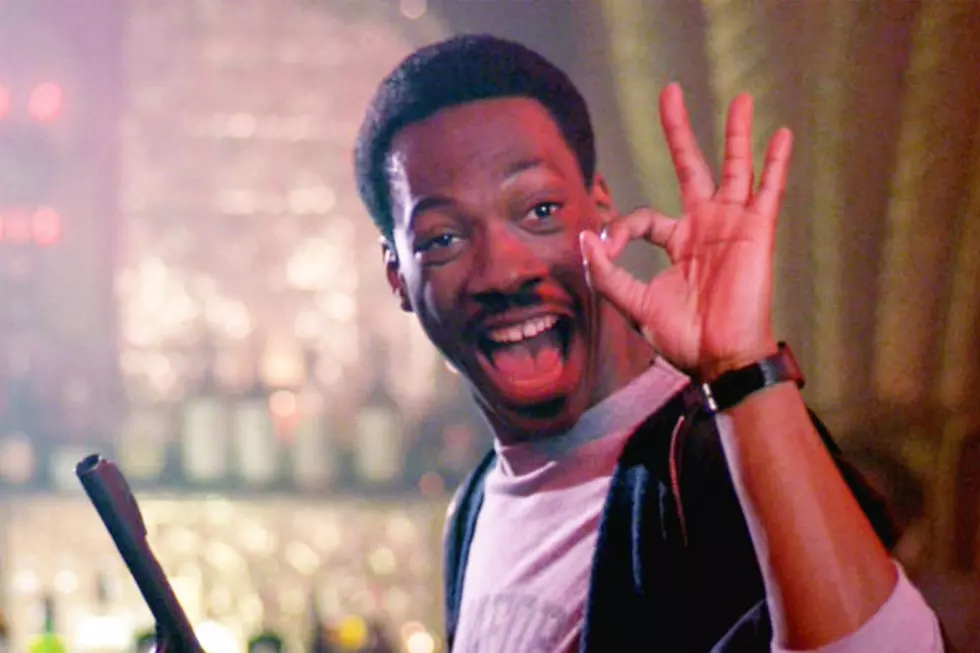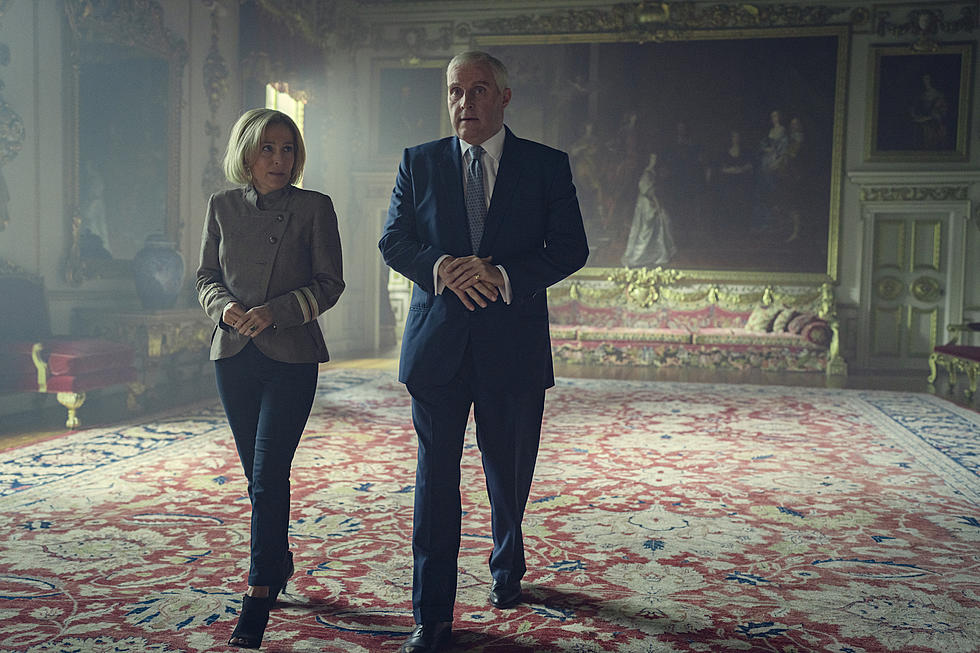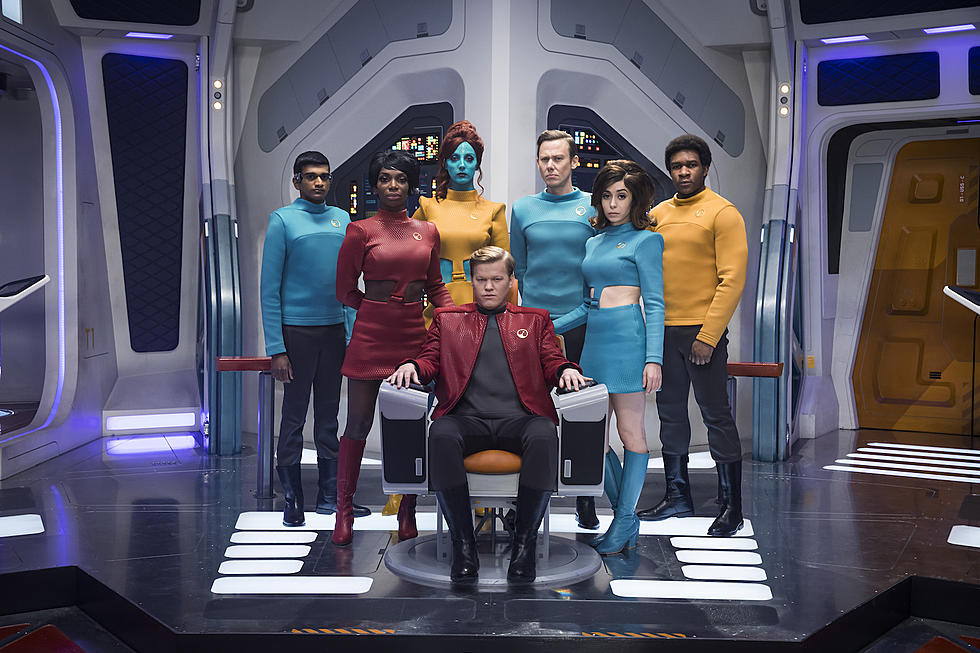
Why Hollywood Needs to Protest More States With Anti-LGBT Bills
Last week, Disney, Netflix, and numerous other studios, actors, directors, and producers took a major stand against LGBT discrimination. The studios threatened to boycott Georgia over the state’s “religious liberty” act, which would sanction discrimination against members of the LGBT community by allowing businesses to deny services to and/or fire those in conflict with their religious beliefs. If the bill had passed, the studios vowed to halt production in the state, which boasts a large tax incentive and has recently been home to Captain American: Civil War, the upcoming Guardians of the Galaxy, Vol. 2 and AMC’s The Walking Dead. Even though Georgia Governor Nathan Deal vetoed the bill on Monday, there are still a handful of states with pending legislation against the LGBT community that Hollywood can and should boycott.
Before we get into any specific bills, there's a few points to address. You may be thinking, “Didn’t the Supreme Court’s same-sex marriage ruling last year fix everything?” or “Don’t LGBT people have the same rights as everyone else now?” Nope and definitely not. While the federal government declared same-sex marriage legal across the country, multiple religious liberty bills were drafted up in response. What those laws essentially entail is that one’s religious beliefs could grant them the right to refuse services to LGBT people, therefore justifying discrimination. A pastor could refuse to grant a same-sex couple a marriage license based on their beliefs just as a florist could refuse to service a same-sex wedding for religious reasoning.
What many people don’t realize is that members of the LGBT community are already deprived of basic rights in over half the country. A recent study by GLAAD echoed the common misconception found amount non-LGBT people, half of whom said they thought LGBT people had “the same rights as anybody else.” Only 23 states have non-discrimination laws in housing, employment, and public accommodations based on sexual orientation, gender identity, and gender expression according to NPR. That means a person may be able to get married to someone of the same gender in their state, but they could still be fired or get evicted for being gay or transgender. And now with the rising wave of “bathroom bills,” transgender and gender non-conforming folks won’t be able to use facilities that fit their gender identity. (For information about why these bathroom bills are problematic and can be dangerous for the trans community, check out Rolling Stone's interviews with various trans folks on their experiences.)
As the fight in Georgia shows, America still has a long way to go for LGBT equality. But if major businesses, specifically film studios and entertainment conglomerates, can take a stand against these bills, there’s hope this kind of legislation won’t pass for fear of losing Hollywood’s lucrative business. After Georgia, North Carolina became the next major state at the center of the anti-LGBT bills fight. The state passed HB 2 last week, the first bill in the country to regulate transgender folks’ use of public restrooms and facilities, and a bill the ACLU has called the “most extreme anti-LGBT law in the nation.” Since North Carolina is a popular state for film production, it was surprising that a Hollywood backlash didn’t follow as it did with Georgia.
While various companies, including Google and Apple, have spoken out against HB 2, director Rob Reiner has been the only voice of the film industry to pledge a protest against the state. Where is everyone else? I looked at the three big studios working in North Carolina to find out who could be the potential boycotters. According to the website for North Carolina’s film commission, the current or upcoming productions in the state include 20th Century Fox’s event series Shots Fired, the Weinstein Company’s upcoming Navy SEAL drama series Six, and ABC and Lionsgate’s Dirty Dancing remake. (For the record, all three studios, not including ABC, had had joined the boycott over Georgia’s religious liberty bill). Lionsgate said in a statement that they will continue to move forward with production on Dirty Dancing in the state, but added, “However, we will be hard pressed to continue our relationship with North Carolina if this regressive law remains on the books.” According to ThinkProgress, Lionsgate has already withdrawn from hiring for a comedy pilot in the state and moved to Canada instead. When I reached out to Weinstein for comment, a rep directed me to Human Rights Campaign's (HRC) letter signed by 80 CEOs including Bob and Harvey Weinstein, which urged North Carolina’s governor to repeal the law. (Fox did not respond to request for comment.) Despite the fact that the situation for LGBT people in North Carolina is much worse than in Georgia now that the bill has actually been passed, Hollywood is staying largely silent.
But now there’s another bill even more fitting of the “most extreme anti-LGBT law” tag: Mississippi’s HB 1523. The bill, which is awaiting a final vote in the House before it heads to the Governor’s desk, is even worse than North Carolina’s HB 2. In addition to Mississippi’s bill, there are plenty others threatening to be signed into law, like one in Kansas that would allow students to sue their schools for $2,500 if they report a transgender person using a bathroom that doesn’t align with their birth sex. Chad Griffin, president of the HRC, recently wrote that within just the first ten weeks of 2016, the organization has fought nearly 200 anti-LGBT laws across 34 states. Rolling Stone recently compiled a list of 17 current anti-trans “bathroom bills“ pending across 10 states.
I researched each of the 10 states listed and found that while the majority aren’t huge location and tax incentive draws for major studio productions, there are a few that have been home to major productions in recent years. Minnesota, which has a pending bathroom bill, has hosted recent TV series by Lifetime, Food Network, HGTV, History Channel, and Travel Channel, as well as Netflix and ABC. But Illinois stood out as the next best logical candidate for a Hollywood boycott. Some of the state’s most recent productions include Batman v Superman: Dawn of Justice, Sinister 2, Divergent, Jupiter Ascending and TV series Empire, Chicago P.D. and Chicago Fire, Sense8 and Shameless. The state’s anti-trans HB 4474, which is currently moving through the House, would require transgender and gender non-conforming students to use separate facilities exclusive to “pupils of only one sex.” So will the studios who plan to continue production in Illinois also protest the state? What about a show like Sense8 that not only features transgender representation onscreen (including trans actress Jamie Clayton) but also off-screen, with openly trans creators the Wachowskis?
When I asked Netflix if production on Season 2 of Sense8, which has reportedly been shooting in the Chicago area, would continue if HB 4474 passed, a Netflix spokesperson said, “Netflix is an inclusive company, and we will continue to evaluate these types of situations on a case-by-case basis.” A rep for NBCUniversal, when asked about future productions of their series in light of the bill, said “We don’t have anything further to add to the conversation at this point.” And Time Warner, who owns Warner Bros., HBO and Turner, did not respond to request for comment.
Why the widespread condemnation of Georgia’s bill hasn’t reoccured with other states among Hollywood studios remains a big question. One big reason could be that many of those states aren’t as popular for production as Georgia. But that’s not reason enough for supposedly inclusive companies not to take a stand against other discriminatory laws. Pledging their opposition to homophobic and transphobic legislation is something that should be adopted on a nationwide basis; studios tossing their support behind one fight isn’t enough. Working in states that pass anti-LGBT legislation could put potential LGBT crew members and employees of those studios at stake. If a studio like Lionsgate, for example, continues production on Dirty Dancing and were to employ a member of the trans or GNC community on set, then how is that person supposed to feel safe using public restrooms following HB 2? There’s also the offices of many studios and entertainment media companies to consider; as Patrick Hogan of Fusion pointed out, Disney’s ESPN has an office in Charlotte that the company has yet to address.
Taking a public stand against discrimination isn’t just something corporations and studios should be interested in if it only affects their assets. The film and television industries have an enormous influence over the American public with the content they produce on the big and small screens. If more studios join in the pushback against anti-LGBT legislation, then perhaps more audiences, especially ones less familiar with LGBT people, can become aware of the bills and the struggles facing the community. Perhaps there wouldn’t be such large misconceptions about what rights LGBT folks do and don’t have, and how dangerous life can be for LGBT folks living in states without non-discriminatory laws, if the companies who make the highest grossing movies at the box office vocalized their rejection of those laws. While Hollywood may not have the direct power to change what laws get passed, they do have a loud enough presence to draw attention to such injustices. After all, there’s no such thing as too many allies.
More From ScreenCrush









